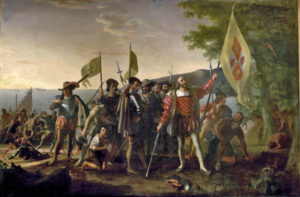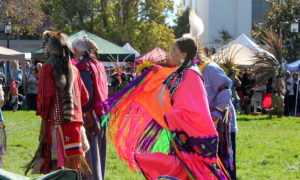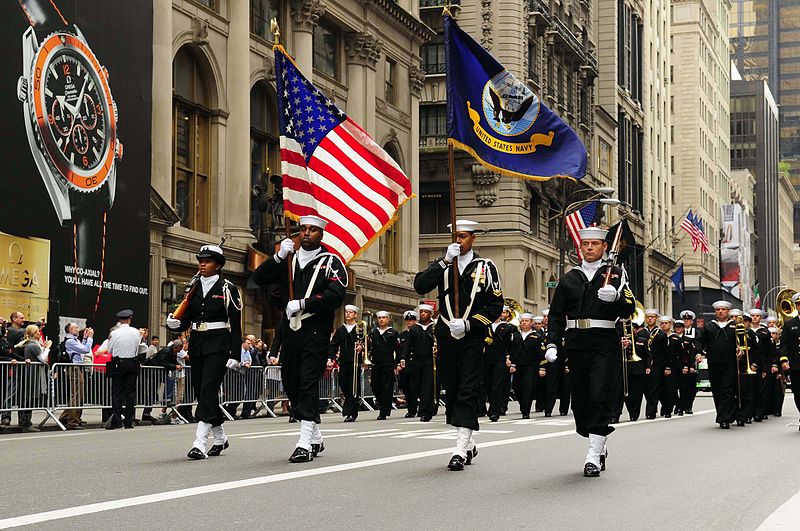 In honor of the Italian explorer and colonist, Columbus Day is celebrated in many countries of the Americas such as the US, Uruguay, Mexico, the Dominican Republic, and many more since the early 19th century. In some countries, it is also known as America-Day or „Día de la Raza“ (Day of the Races). In this article, we will shed light on the question of why this seemingly happy occasion is in fact highly problematic.
In honor of the Italian explorer and colonist, Columbus Day is celebrated in many countries of the Americas such as the US, Uruguay, Mexico, the Dominican Republic, and many more since the early 19th century. In some countries, it is also known as America-Day or „Día de la Raza“ (Day of the Races). In this article, we will shed light on the question of why this seemingly happy occasion is in fact highly problematic.
More than five centuries ago, Christopher Columbus completed his first voyage across the Atlantic Ocean from Spain on the 12th of October in 1492 and arrived at what is nowadays called the Bahamas. Convinced that he had set foot on the East Indies, he called the inhabitants of the island he landed on „indios“. What was a huge accomplishment for 15th century Europe insofar as supposedly „new“ land had been „discovered“, was the first step in the enslavement and annihilation of the native peoples that had already lived in the Americas for many centuries. This is also why expressions such as „discovery“ and „new-found land“ are highly inaccurate: You can’t speak of a discovery in this case as there had been people living on it for a considerable time and the land was only new to the sailors and Europe despite having been inhabited for many centuries already. Columbus enabled access to the wealth of the Americas by exploiting resources and the Natives‘ labor, and the Transatlantic slave trade, causing tremendous abuse, torture, murder and the assimilation of thousands of people.

This is why the celebration of the man (and the Europe of his time that he represents) who has initiated the displacement of native cultures and caused so much sorrow, is increasingly disputed. In view of this fact, his stylization as a brave man and an icon of the enlightened world is more than questionable.
In some places such as Seattle and Minneapolis, both cities with very active Native American communities, Columbus Day has been renamed Indigenous Peoples‘ Day in 2014 so as to remind us of the severe consequences of what started out as being an exploration and to honor those who have suffered from the colonial inheritance of their country and whose ancestry has been taken away from. In Venezuela, it has been renamed „Día de la Resistencia Indígena“ (Day of the Indigenous Resistance) in 2002, and in Bolivia, it is called Day of the Decolonization nowadays. Check out this video for more information as to why Columbus Day should not be celebrated from the perspective of Indigenous people.



